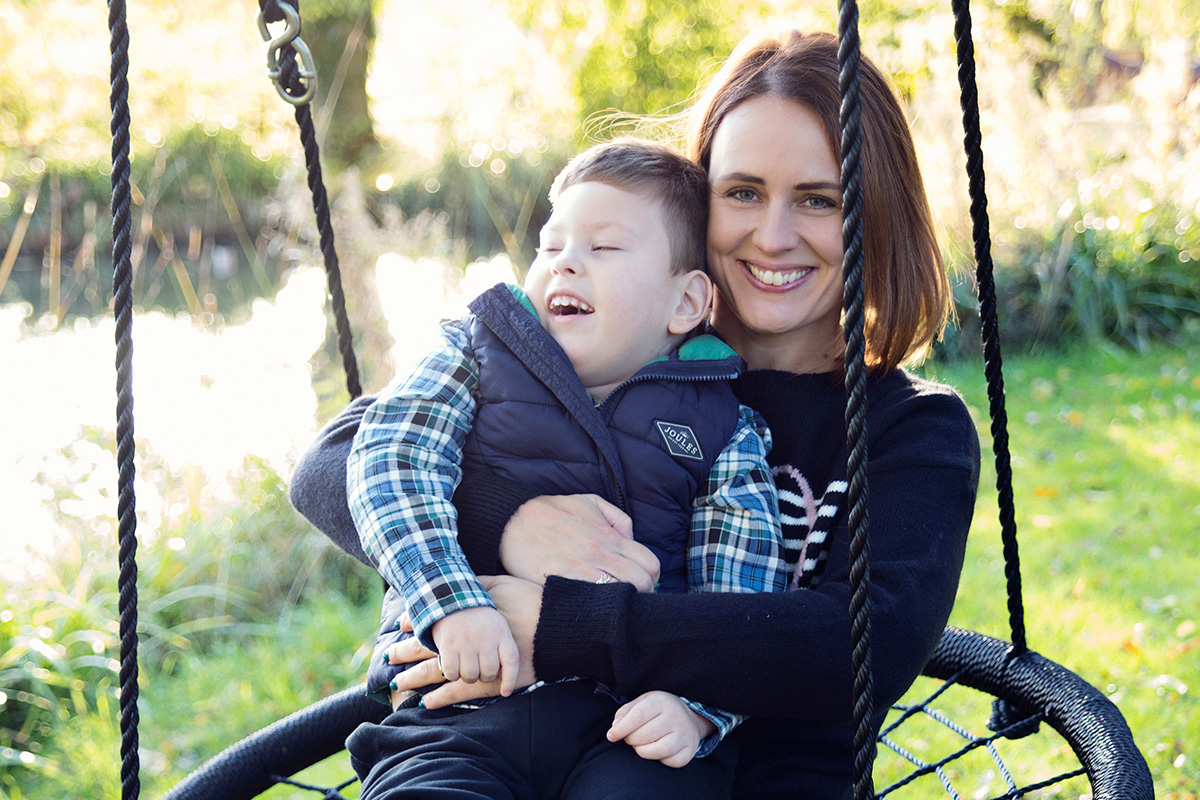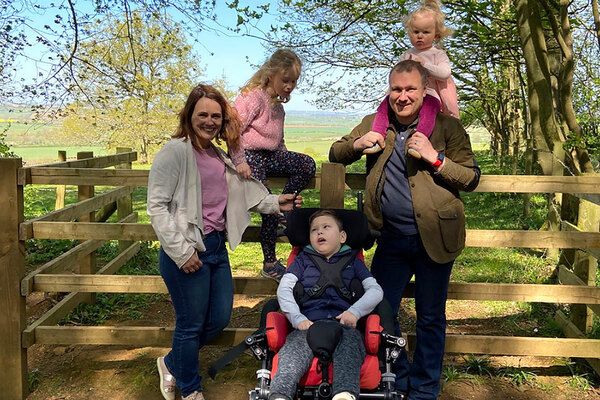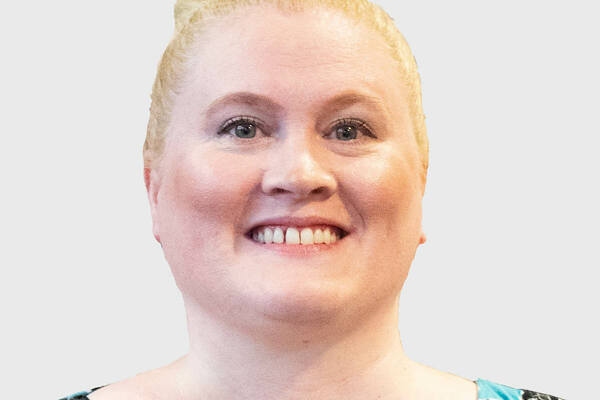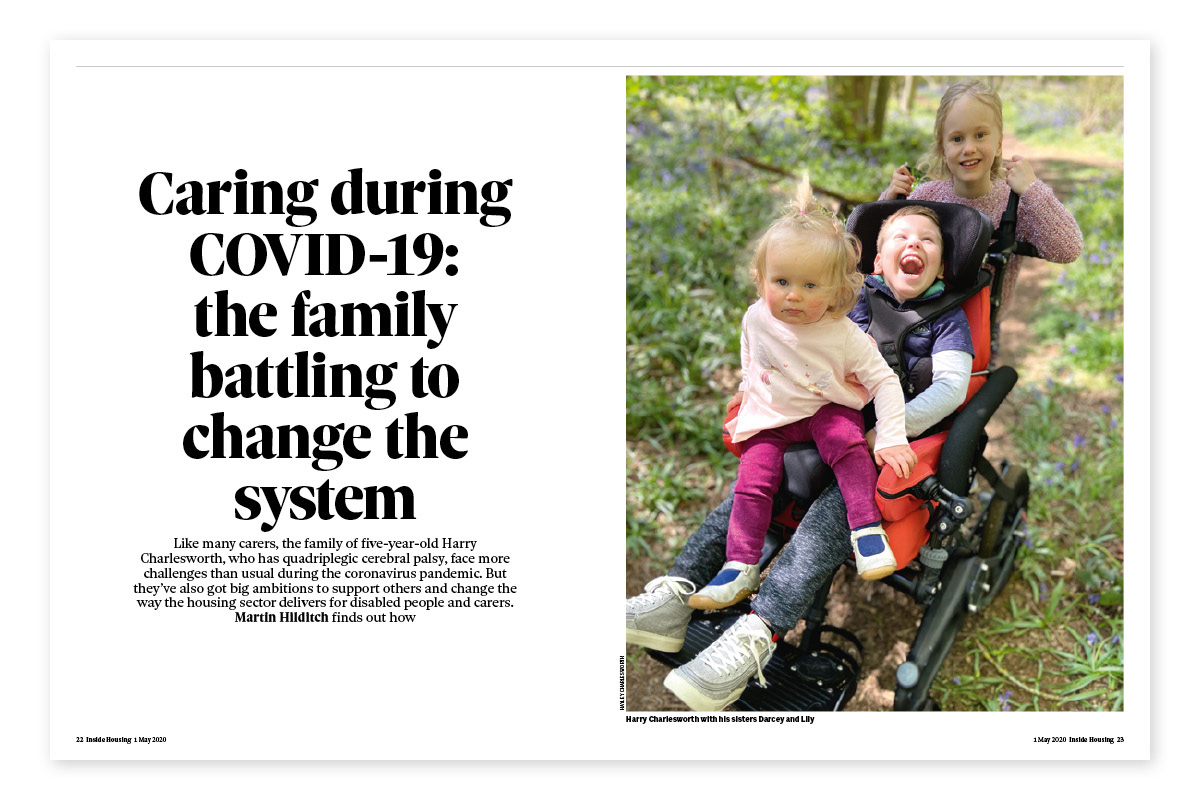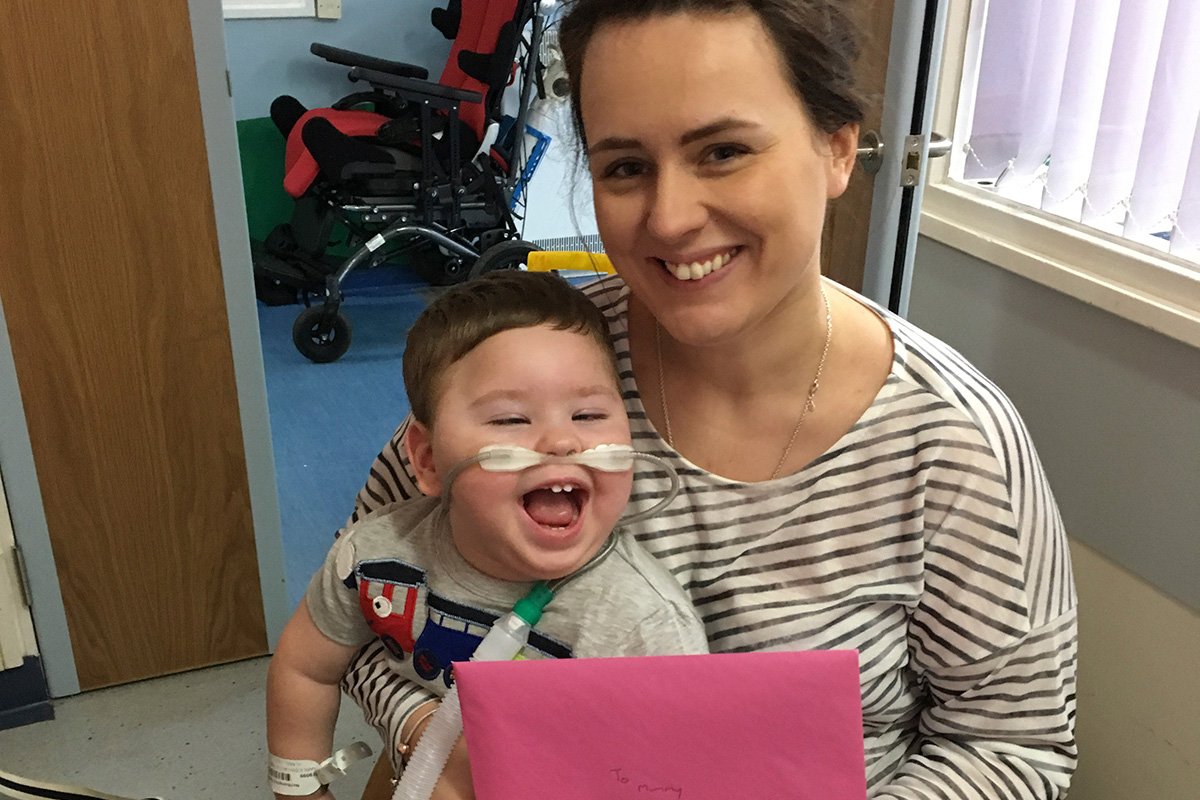You are viewing 1 of your 1 free articles
‘The value we give carers has got to be the positive we take out of COVID-19’
A new campaign, Harry’s Pledge, is asking housing professionals to make a pledge to support carers and up the delivery of accessible homes. Martin Hilditch reveals the four commitments that could make a real difference to people’s lives
Last month, Inside Housing reported on the Charlesworths, a family of five who were asking housing professionals some awkward questions.
Parents Hayley and Andy Charlesworth, whose five-year-old son Harry has quadriplegic cerebral palsy, were calling for the professionals to take a look in the mirror and ask whether the sector is doing enough to support carers and people who need high levels of care.
In truth, the answer to this question should be obvious to anyone who has been following housing news in recent times.
In 2018, for example, an Equality and Human Rights Commission report into housing and disabled people found that just 22% of local authorities have a register of accessible housing (although in Wales, where registers are encouraged, it was more than 50%). Research by housing association Habinteg found that less than half of the 322 local plans it studied in England set a specific requirement for a proportion of new homes to meet any form of accessible housing standards.
The average hourly pay for care workers mooches along below the basic rate paid in most UK supermarkets, according to Skills for Care. Last year, Julie Ogley, then-president of the Association of Directors of Adult Social Services, talked about how the opening of a Center Parcs in Central Bedfordshire, had seen some council care home staff change jobs because of the promise of better pay.
So, what can be done to improve matters? After the Charlesworths’ story was published, the conversation took off.
Behind the scenes, a group of housing professionals, including Julie Doyle, chief executive of Longhurst Group and Harry’s grandmother; Aileen Evans, president of the Chartered Institute of Housing (CIH); and members of the PlaceShapers group of housing associations; the National Housing Federation (NHF); and Carers UK, came together to discuss a plan of action.
Within weeks details of a campaign for change had been drawn up. And last week, almost 30 senior housing professionals from across the UK met in a Zoom meeting, chaired by Inside Housing, to finalise the details and share ideas.
Today, the group launches that campaign. Named after Harry Charlesworth, the ‘Harry’s Pledge’ campaign, which Inside Housing backs, calls on social landlords to make a commitment to carers and asks people to do four main things:
- Employers to make policies carer-friendly, with flexible working so people can fit paid work around caring responsibilities, as well as provide platforms and support for carers to share their stories and tell employers what additional support they need
- Make the offices and community spaces as accessible as possible, for example by installing ‘Changing Place’ toilets in any new offices that are open to the public, and look to retrofit existing spaces
- Build more fully accessible homes, as well as routinely consider accessibility in general needs housing
- Work to promote care as a valued career choice and lobby for changes in pay and rewards
Speaking at the Zoom discussion, Ms Charlesworth states that she feels “absolute overwhelmed with the support we have received. We launched this not long ago and it has started to get some momentum now”.
“It is really exciting stuff,” she adds. “If anyone can take on the pledge, it would mean such a lot. I know first-hand what it is like to live as a carer and what it is like to have a disabled child that you can’t take out to places and not being able to access properties that are right for him. But every single pledge, if companies take it up, is going to be massive.”
Speaking to Inside Housing after the meeting, Ms Doyle says that she is determined to push for change “because I’ve seen the impact that being a carer can have on someone’s mental and physical health”.
“When my grandson Harry was born and we were told about his complex disabilities and expected short life expectancy, our world fell apart,” she says. “Watching my daughter and her husband go through such pain has been the hardest thing ever.
“Carers need more support, they need emotional and physical support to be able to care well and have a life of their own, too. The pledge aims to help paid and unpaid carers and improve their lot.
The article from May about the Charlesworths, which kick-started the conversation about carers and led to the Harry’s Pledge campaign
“It will also bring about changes in design and accessibility, which really needs attention.”
Helen Walker, chief executive of Carers UK, says it is fully behind Harry’s Pledge, which launches during National Carers Week.
“We know how vital support provided by family and friends is to those who are disabled, ill or growing frail," she states. "Our Carers Week theme is making caring visible, this initiative does just that.”
Speaking at the event, Charlie Norman, chief executive of Mosscare St Vincent’s and vice-chair of both the Manchester Housing Providers’ Partnership and PlaceShapers, says she is delighted to see that so many housing providers have been keen to engage with the campaign.
“The value we give carers has got to be the positive that we take out of the COVID situation, hasn’t it?” she says, adding that it is now important to back that up in practice.
She points to the concept of Lifetime Homes, developed in the early 1990s, which set out 16 design criteria to make homes more accessible, as a concept that she thinks needs re-adoption by some landlords.
“We were all doing that a while ago and it seems to have just fallen off the tracks,” Ms Norman states. “That has been linked to funding and low grant rates and squeezed business plans and all of that, and it shouldn’t be.
Harry’s Pledge – a challenge from the founding members
As a sector we are proud to care. From providing specialist care and support to offering care services to people living in general needs properties, we are committed to caring for our communities.
As organisations we aspire to provide a supportive and caring work environment where people can flourish. With a changing demography we know there will be increased demand for this in future, but now more than ever the coronavirus crisis has highlighted the vital work that carers do.
It has also shown very clearly that as a society we do not value carers, both paid and unpaid, enough. Clapping weekly to celebrate their work is a fantastic show of solidarity and thanks, but it must be followed by changes in public policy for those who provide care.
The impact of the pandemic has forced us, as leaders in social housing, to ask ourselves some difficult questions.
Are we really doing all we can to support staff who are also carers? Are we building homes fit for people who need high levels of care, or designing better accessibility standards in our general needs properties? Are we showing our frontline carers that we appreciate them enough?
Harry with older sister Lily
If we are honest, some of our responses to these questions make us uncomfortable. We are not doing enough. We can do more.
That is why we have joined together as housing associations, chief executives, proud members of the CIH, NHF and PlaceShapers, with the support of Inside Housing, Carers UK, and our founding partner Harry’s Pals to make a renewed commitment to carers – which is called Harry’s Pledge.
Harry’s Pals is a trust that supports parents caring for children with disabilities by providing a counselling service. Run by Hayley Charlesworth, whose five-year-old son Harry has quadriplegic cerebral palsy, the trust is working with the housing sector to improve the lives of disabled people and carers.
We define a carer as someone who cares for someone with physical or mental health needs.
We are asking social landlords to sign up to and support Harry’s Pledge, which focuses on four key areas to ensure that we honour and support those who need care and those who provide it, as we rebuild our organisations and our society.
“We do build lifetime homes into our new build, but I can’t put my hand on my heart and say we do it with every scheme and I think we should be doing that.”
Ms Evans, who chaired a breakout session looking at the best way to develop care as a profession, says that members of the group were concerned that “because many people join care as a profession because it is rewarding that they are in some way exploited because of low pay”.
“We need to think about how we avert that,” she states. “We need to share stories. Housing21 is showing leadership, for example, by increasing carers’ wages by 10% above minimum wages and then going to local authorities asking them to pay for that, rather than not paying carers because the package from the local authority wasn’t good enough. And some local authorities are actually increasing the amount that they paid.”
Group members suggested the campaign could use councils that have prioritised support for care staff as case studies in a bid to influence their more reluctant peers, Ms Evans adds.
Monica Burns, head of member relations at the NHF, points to seed funding a group of housing associations are providing for something called ‘Invisible Creations’ – discreet adaptations that are strategically placed around the home to help make daily living easier.
Scottish social landlords build their homes to the Scottish government’s ‘Housing for Varying Needs’ standards.
Today’s discussion – and the call for homes that better meet the needs of carers – could be fed into conversations about a planned update of the standards, suggests Fanchea Kelly, chief executive of 1,500-home association Blackwood Homes.
She suggests that there should be a focus on cross-border learning as the Harry’s Pledge campaign develops. In the spirit of the suggestion, she says she will share the design guide for Blackwood House. The guide contains a set of principles to help providers deliver “highly accessible, beautiful, affordable and, importantly, connected [homes]”, Ms Kelly states.
There is a strong commitment to share information and push for change among the attendees. For Angela Lockwood, chief executive of North Star Housing Group, that is simply “what social landlords are here for, aren’t we? To be better and to go a bit further and be a bit more leading edge”.
The Charlesworth family would certainly agree and they want people to move swiftly to deliver change. In one month the conversation they started has grown into a fully fledged campaign. It is a good start, but the family is aware that there is a long way to go.
